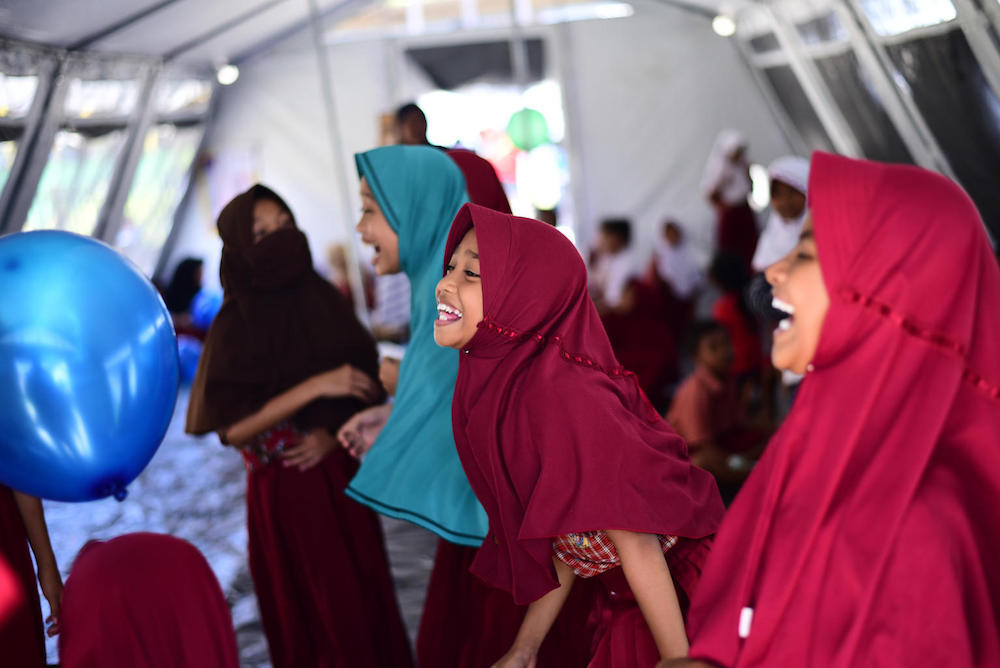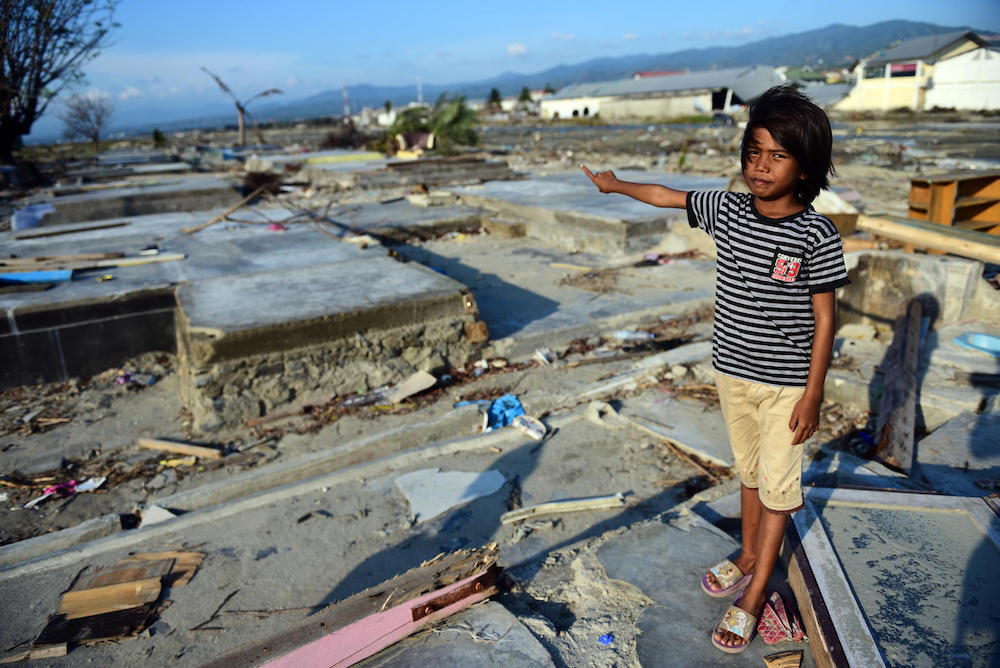
60,000 children to get emergency education after Indonesia tsunami

Children's welfare after natural disasters, Education Cannot Wait, Education in emergencies, Girls' education, Refugees and internally displaced people

The humanitarian fund Education Cannot Wait will work with the government and agencies to target the most vulnerable children.
More than 60,000 children and youth whose lives were devastated by the Indonesian tsunami will soon be back in safe schools.
An emergency response by the humanitarian fund Education Cannot Wait will target the most vulnerable girls and boys – including orphans, severely-traumatised children and those with disabilities.
An allocation of $2.6 million will finance 910 temporary classrooms and educational supplies. More than half of those benefiting will be girls.
An additional 2700 teachers – 75% of them female – will be trained to provide psychosocial support for children who have lost their homes, parents and families in the recent disaster in Sulawesi.
“A tsunami is a horrible experience that renders people and communities completely powerless. There is no mercy,” said Education Cannot Wait Director Yasmine Sherif.

Education in emergencies
“The devastating tragedy in Indonesia is ripping families apart and disrupting the life of children and youth in the most painful ways. We need to get these boys and girls back in safe and secure learning environments immediately.”
The earthquake and tsunami on September 28 damaged or destroyed nearly 70,000 homes and displaced more than 210,000 people. Authorities estimate that over 2000 people were killed.
At least 1200 schools were damaged, impacting more than 160,000 students.
Sherif said: “By providing immediate support to re-establish education for these children and youth, we are taking an important first step in returning the people of Indonesia to normalcy and in contributing to a sustainable humanitarian response that protects and brings hope.”
A back-to-school campaign will also be launched and various agencies will work together under the overall coordination of Indonesia’s education ministry.

Tasya Tanita, nine, stands among the ruins of her home at Talise village (UNICEF / Arimacs Wilander)
The 12-month projects will be implemented by UNICEF and the local chapter of Save the Children (YSTC) in close collaboration with other partners including the Indonesian branches of World Vision (WVI) and Plan International (YPII).
Education Cannot Wait (ECW) was established in 2017 after campaigning by Theirworld and others for a fund to address the needs of education in emergencies.
Before this announcement, ECW was reaching 765,000 children and youth affected by humanitarian emergencies including conflicts and natural disasters.
In September – just over a year into its operations – the fund announced it had invested a total of $127 million in 17 crisis-affected countries.
So far ECW has mobilised $281.2 million in contributions from 13 donors. It aims to raise $1.8 billion to provide access to quality, reliable education for 8.9 million children by 2021.
More news

Skills for the future give young people the best chance of success
